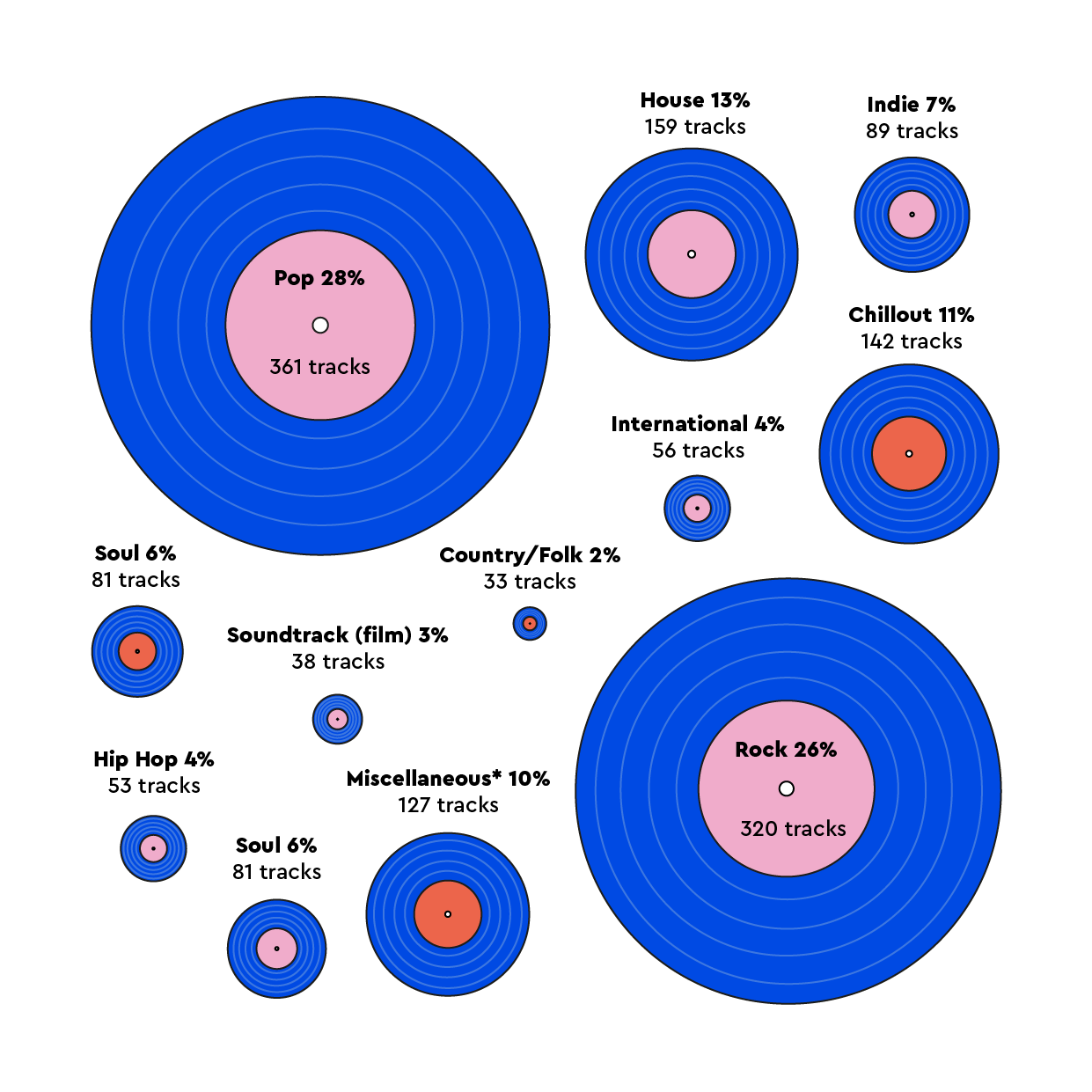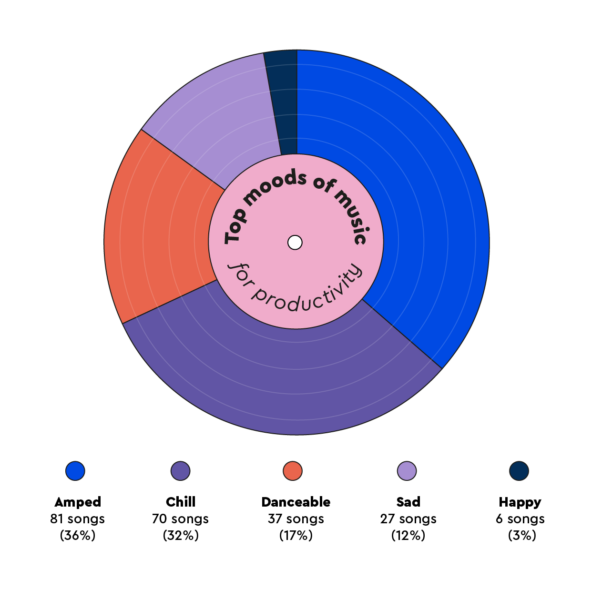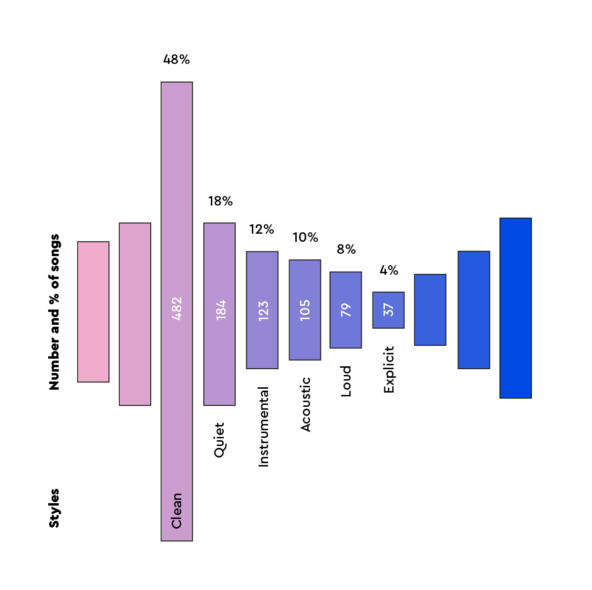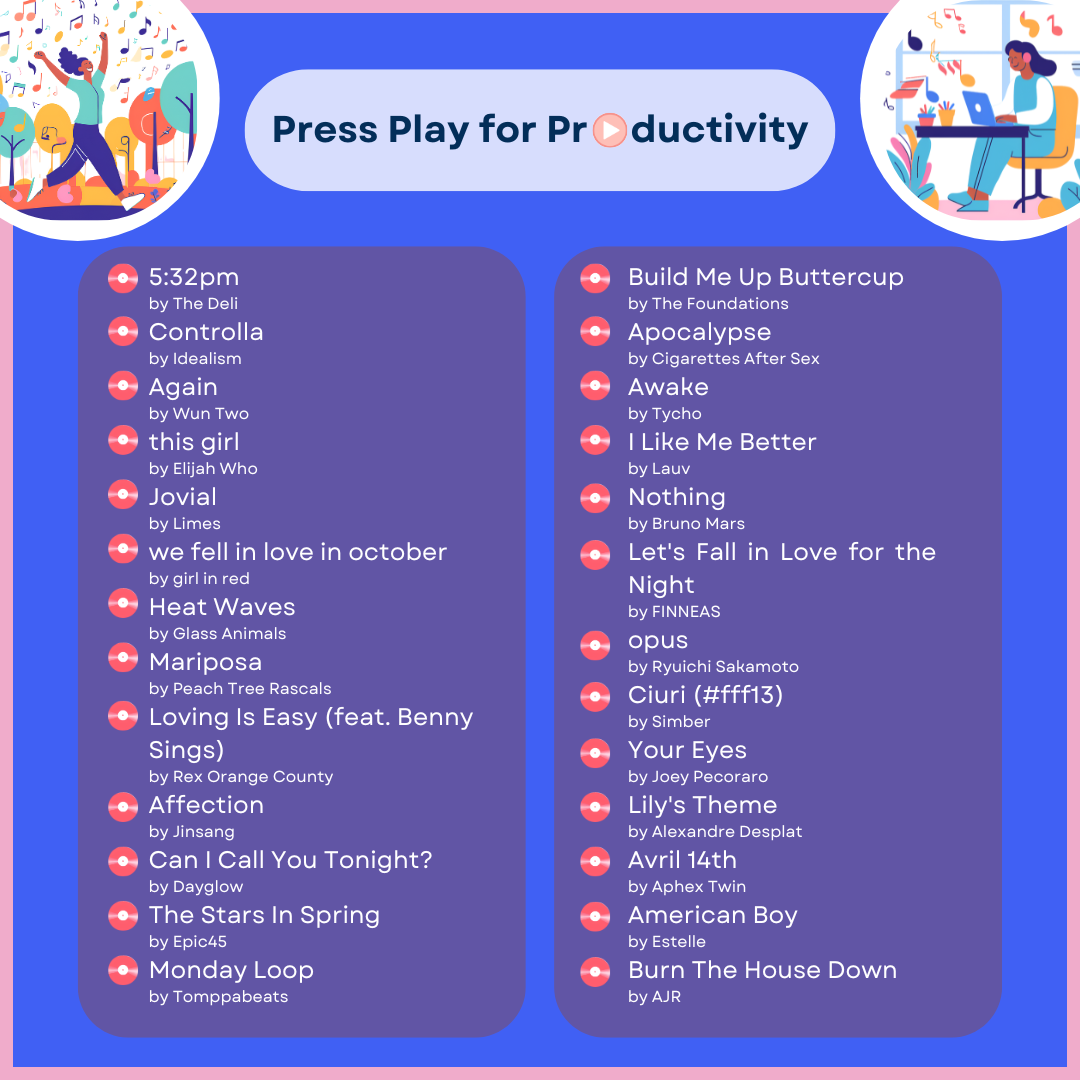- When are we most likely to need a productivity booster?Analysis of Google data shows that 10 am and 2 pm are when we commonly experience a slump in productivity during the working day, suggesting that teams are turning to the search engine for advice. Dips in searches – at 9am and from 3pm – suggest that workers are bookending the day with bursts of activity.
- Why is productivity a priority in the workplace?Improving productivity helps employees to produce more work, to a higher standard and, in turn, contribute further to bolstering a company’s bottom line.
In most cases, it hugely benefits a company’s output – be it goods, services or, if you’re in the service industry or retail industry, the customer experience – and therefore boosts a company’s success. A productive team is a happy, accomplished one too, so it’s great for morale. - What is productivity?Productivity can be defined as how efficient a person or machine is at outputting a good product or service compared to what they have been given to input. In short, how much work one person can do in a working day.
This measure of performance can seem subjective on a personal level. You might judge your personal productivity based on how much your manager or colleagues do comparatively. You may even put pressure on yourself to tick off loads of tasks from the to-do list – which is productive in a literal sense – but remember that progress can also be chipping away at a large project or learning a new skill. However, at the base of it, it’s measured by the number of hours worked to the economic output. Other factors may fall into this based on your industry.
Music for productivity: the ultimate work playlist guide
Home » Music for productivity the ultimate work playlist guide
What’s the best music for productivity? It’s a simple enough question – and finally, we have a definitive answer.
We know that certain music can boost performance: a recent study found that background music improves working memory and speeds up skill-based tasks. Additionally, the right music can stimulate the brain’s reward system, releasing dopamine and improving mood. But not all music is created equal – so to save you searching through countless playlists, we set out to find the best music to boost productivity.
In this guide, we’ll arm you with the tools you need to build a playlist to boost productiveness and motivate your team through the power of music.
In this guide:
How to boost productivity in the workplace
One of the biggest threats to workplace productivity is distraction, with other threats being lack of confidence and low motivation. These distractions often include other deadlines, a busy mind or the buzzing backdrop of an office.
If you relate, you’re not alone – and our recent survey results suggest music may be the solution you’re looking for. Almost three-quarters (73%) of workers we surveyed1 often find themselves distracted in the workplace – but, for four in every five employees (80%), music helps them to concentrate and be more productive.
Two-thirds (66%) even say music motivates them at work more than any other incentive2. Most (90%) feel more confident when their to-do list is backdropped by a good song3.
What is the best music for concentration?
A recent study found that preferred background music helps workers sustain task-focus mental states by preventing mind-wandering. However, there can be a disconnect between what workers want to hear while they’re working, and what’s actually played.
To ensure you’re playing music that will improve mood and productivity for workers, you might wish to survey your team, so the soundtrack meets their musical needs. Otherwise, let us make life a little easier.
We’ve analysed thousands of productivity playlists and identified 1,000 songs that commonly appear. Using this dataset, we’ve dug into the specifics of what makes the ultimate productivity playlist.
Our first element we looked at was genre. Drumroll please…
Best genre of music for productivity: Pop
We found that POP is, consistently, top for productivity – both on company and personal playlists4 as we have found in a recent survey.
Here’s our breakdown of the best music for to increase productivity, by genre:

By examining 1000s of playlists with titles relating to productivity, we found that the top genre of music to help you to focus is Pop.
Nearly three in 10 (28%) tracks were Pop, with sub genres like Pop-Punk or Pop-Rock bolstering its popularity. Rock came in second, defining just over a quarter (26%) of the featured songs.
The least popular genre was Country and Folk – only owning a 2% share of the songs in the playlists analysed, followed by Soundtrack (3%) and Hip Hop (4%).
We also ran a survey that asked workers from various sectors to share their favourite music genres for work playlists – and we found that one sector that gets it right is warehouse and logistics4. Pop music is the most common genre for their playlists (55%) and the favourite choice for workers (30%).
If you’re concerned that your playlists don’t match with your workers’ preferences, it could be a good idea to switch to Pop. But workers would also benefit from Rock, House and Chillout.
Why are these the best genres of music to listen to while working?
Different genres have varying benefits for concentration, focus and motivation. Our music therapist, Marianne Rizkallah, breaks down the benefits of each genre for productivity.
Marianne Rizkallah
Pop music: “Pop music’s predictability is its strength, making it at home in any productivity playlist” says Marianne.
The average length of songs added to the playlists was 3 minutes 30 seconds – a length that’s especially common in Pop. “Song length, tempo, timbre or sound palate, and verse-chorus format are all pop staples and gives the listener something dependable and reliable” she explains. “There won’t be too many surprises, and the music, therefore, doesn’t have to demand all your attention and isn’t distracting, so you can focus on the work you need to get done.”
R&B: “R&B’s smooth, clean production and vocal lines make it a pleasing listen and easy on the ear” observes Marianne.
“As with Pop music, its song length, tempo, and sound palate are often similar across the genre, allowing for a “pad” of sound to distract the ear from background noise and allow the brain to focus most of its energy on the task at hand.”
Chillout and Classical: Classical music is a popular choice for focus, with its soothing effects. “As well as focus, Chillout and Classical music can help induce a state of calm.” Marianne notes. “With a slightly slower tempo encouraging a slower heart rate, using music to feel more relaxed enables your energy to be used where it’s needed and stimulate creativity.”
The “Mozart Effect” suggests that listening to classical music can improve spatial-temporal skills. This is why composers like Mozart, Beethoven, and Bach are popular choices for concentration.
Miscellaneous: This includes designed background noise, such as coffee shop sounds, or Nature sounds, like rainforests, waves crashing or birds chirping, and even upbeat music, like video game soundtracks. “These are expressly designed to mask distractions and improve focus” Marianne explains.
What do the best songs for productivity sound like?
The sound of songs is determined by several factors, but the main ones are mood and style of sound. So, we looked at the most popular moods of songs on productivity playlists, and the styles of sound on these tracks. What are the best moods and styles to enhance productivity?
In one of our recent surveys4, nearly half (44%) of workers ranked the emotion of a song as their top confidence-booster in the workplace. They also consider the tune (54%), tempo (52%) and lyrics (57%) as having the feel-good factor.
The best mood of music for productivity: Amped
We discovered that over a third (36%) of the commonly chosen songs create an ‘amped’ mood, so think feel-good, upbeat Pop. However, we also found that ‘Chill’ is very popular, accounting for one in three (32%) songs. So, if you’re seeking a calmer vibe, these more soothing sounds are a great choice.
Here’s our breakdown of the best music, by mood:

Both ‘Amped’ and ‘Chill’ featured heavily in popular productivity playlists, indicating different preferences, possibly for performing varying tasks.
‘Chill’ music is typically lo-fi and calming tracks. Lo-fi – the kind of relaxed music you might hear in coffee shops – is beneficial as it has tracks with a steady, soft beat and minimal lyrics, creating less opportunity to distract you. The pulse also remains uninterrupted, which helps listeners enter, and stay in, a state of flow.
The least popular vibe when it comes to productivity tracks is, interestingly, ‘happy’. These only appear 3% of the time across all the playlists analysed. Following generic happy music, sad songs are best to steer away from; just one in eight (12%) songs align with this.
What about the best style of sound?
Best style of sound for concentration: sonically clean
When it comes to the style of background music, ‘sonically clean’ tracks (i.e. sound without any effect) that aren’t too busy with hectic instrumentals are most effective for boosting productivity.
Here’s our breakdown of the best music, by style of sound:

‘Clean’ style music featured heavily in popular productivity playlists.
‘Sonically clean’ characterises nearly half (48%) of the songs analysed. Quiet and instrumental music follows, with nearly a fifth (18%) and an eighth (12%) respectively.
A big no-no for the office playlist would be explicit music – only 4% of songs analysed fell into the category. Hearing curse words is a fast track to distraction for most people, it seems!
The ultimate productivity playlist
Our recent study and analysis of thousands of tracks belonging to ‘productivity’ playlists has allowed us to create the ultimate soundtrack for a productive workplace.

To see the full list, click here.
As we’ve seen, it’s all about matching tempo to the kind of work you need to influence. Music with a Pop tempo of 50-80 beats per minute can boost energy and motivation. Slower tempos, meanwhile, can create a calming atmosphere and improve mental clarity.
Use classical music for complex tasks that require deep concentration, upbeat music for tasks that require energy and motivation, and chillout or background sounds for tasks that require a singular focus.
Productivity music: licensing for a happier, more functional workforce
Before you hit ‘play’ for your colleagues, you’ll need a music licence for your office. Once purchased, you’ll be able to play millions of songs so you can enjoy seeing the productivity boost in your team – while having the peace of mind knowing that you’re legally covered and supporting the entertainment industry. Get a quote for the music licence online or call 08081348365.
FAQs
References
Playlists analysed 01-22/05/2024
Google trends tracked 16-23/05/2024
Google trends ‘productivity’ since 16th May 2024:
- 16 may – 4pm, 9pm
- 17 may – 5am, 10am, 2pm
- 18 may – 11 am, 2 pm
- 19 may – 5am, 9am, 3pm
- 20 may – 3am, 10am
- 21 may – 3am, 10am, 2pm
- 22 may – 10am, 2pm
- 23 may – 10am
*These were single songs in a genre of their own or in an abstract genre.
Studies referenced:
Kiss, Luca, and Karina J Linnell. “The effect of preferred background music on task-focus in sustained attention.” Psychological research vol. 85,6 (2021): 2313-2325. doi:10.1007/s00426-020-01400-6
Taheri, Shirin et al. “Investigating the effect of background music on cognitive and skill performance: A cross-sectional study.” Work (Reading, Mass.) vol. 71,4 (2022): 871-879. doi:10.3233/WOR-213631
1: A survey commissioned by PPL PRS of 2000 people who work in offices, remotely and hybrid in the UK in March 2024
2: A survey commissioned by PPL PRS of 500 people who full time and part time in all industries in the UK in October 2023
3: A survey commissioned by PPL PRS of 1000 people who work in offices, remotely and hybrid in the UK in July 2023
4: A survey commissioned by PPL PRS of 500 people who full time and part time in Warehouse and Manufacturing industries in the UK in February 2024
Author
Alexandra Carr
Related
UK workers lose up to 15 hours a WEEK to distractions – totalling 74 days every YEAR
Chatty colleagues are revealed to be the biggest distraction, as our leadership coach reveals tips
Winter warm up: How music can help businesses this January and beyond
It might only be the first week of 2024, but many of us are no
Create a better working atmosphere with music
Most of us know that different genres and tempos of music can create different moods.
Ready to play music?
Set up a new music licence for your business or organisation.
Get TheMusicLicence
